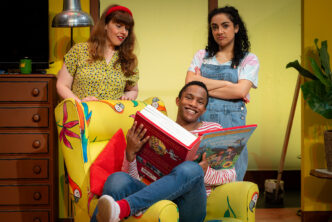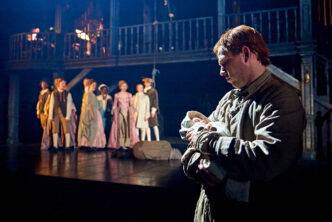‘Oh, that’s like me!’ Playwright, Henry Filloux-Bennett, now Chief Executive and Artistic Director of Lawrence Batley Theatre in Huddersfield, talks about his previous life as a chef and his inspiration and determination to bring Nigel Slater’s Toast to the stage.
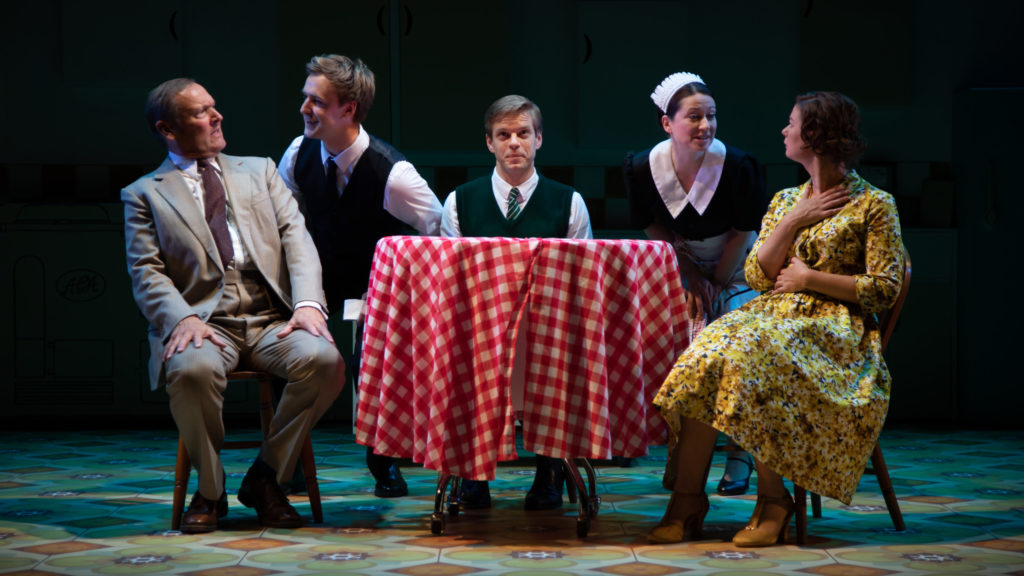
Did you read the book with the intention of adapting it for the stage?
Henry: “No. When I read the book I was a cook, working in London in the same hotel Nigel ends the book in. Every day I was knackered, because kitchen hours are stupidly long. I was commuting in, so to keep me awake I would read a book. I was given Toast one Christmas and it was the first book I picked up as I left for work one day. I started reading on the bus back and forth to the kitchen. Not only did the story resonate because he has an interesting upbringing and then goes into cooking and I thought – ‘Oh that’s like me’, but also I didn’t have anything to do with theatre but I sort of wanted to do something in theatre, and I thought: ‘ah, that could be the show.’
“So, I tried to get the rights – this was going back to 2006. I was going to do an Edinburgh show and some food, but Nigel said, ‘No’. Thank God he did, because 10 years later it’s such a more considered thing. I would’ve literally just done it in two hours and hoped for the best. So, thank God he did say no so many times, because now it is something that he’s happy with”.
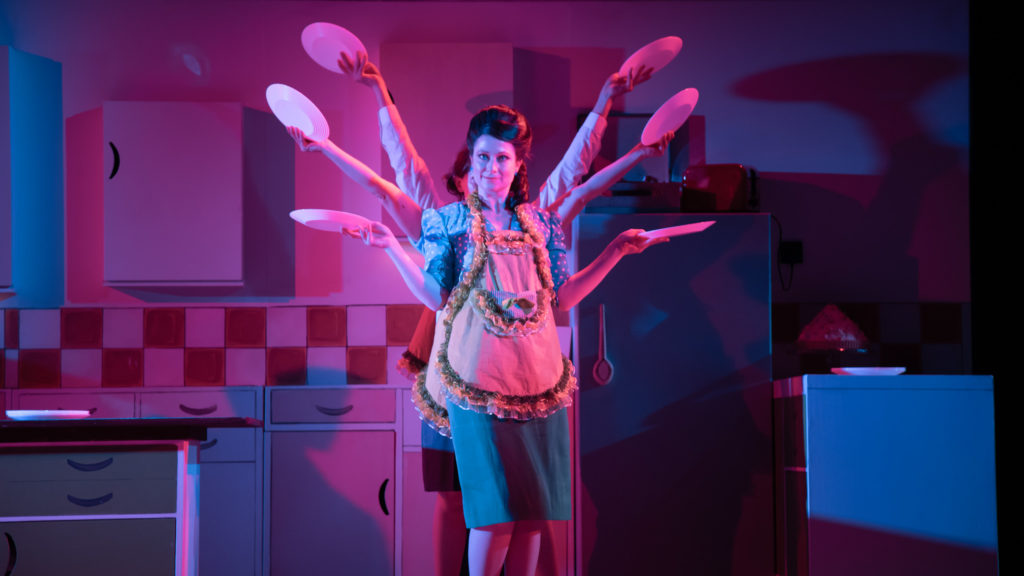
What happened to make Nigel say yes?
Henry: “No idea. I think partly it was a ‘no’ originally because he’d sold the film rights. I left it for a few years and I went back but it was a ‘no’ again.
“Then the Lowry was doing this festival Week53 about coming of age. The play could not be more about coming of age and Nigel turned 60 the year it started. I think it was something to do with this festival because it wasn’t a big glamorous West End show. We were trying to create this small experience for a very limited number of people that I hoped showed I genuinely wanted to do it. I think a lot of adaptations happen because it’s going to make money – I think he worried about that, not that it would be a big cash cow but that it was cynical. I just thought, oh we can get some foodies to come and see this. Genuinely, if it never got past the Lowry, nevermind Edinburgh and a London tour I would’ve been happy because I just think that story is lovely and Nigel, for me, is a genuinely lovely man – that, plus the book, is probably what made him say, ‘yes’”.
What’s the difference between the Lee Hall’s TV film of the book and the stage adaptation?
Henry: “The ending in the book is not the same as the film, it’s not the same as the play. I’m really delighted that Nigel thinks that the play is the nicest ending, even out of the book. I’m really touched by that. The reason I knew what to do with it was because he’d said in an interview about the film that the book was him saying goodbye to his mum or saying sorry to his mum, so there’s another thing that happens in the play, where usually there are a few gasps because you sort of can’t believe what has just happened has happened and I think he regretted it – still regrets that – the book was his way of saying sorry for doing that. The way we ended the play, I knew that’s what he wanted to do. So, I got to do it in a way that the book hadn’t done it and the TV didn’t know to do it.
“The main difference I think though, is it’s quite dark. Although I think it’s quite funny and I hope it’s lovely, it’s also quite dark. Nigel didn’t have the best time growing up. The film was made for Christmas on BBC and looked like this Charlie and the Chocolate Factory, dream box 1960s. The aesthetics are amazing, but everything is just a bit nice in the film whereas it’s not in the book. We’ve tried to stay clear from making it too nice”.
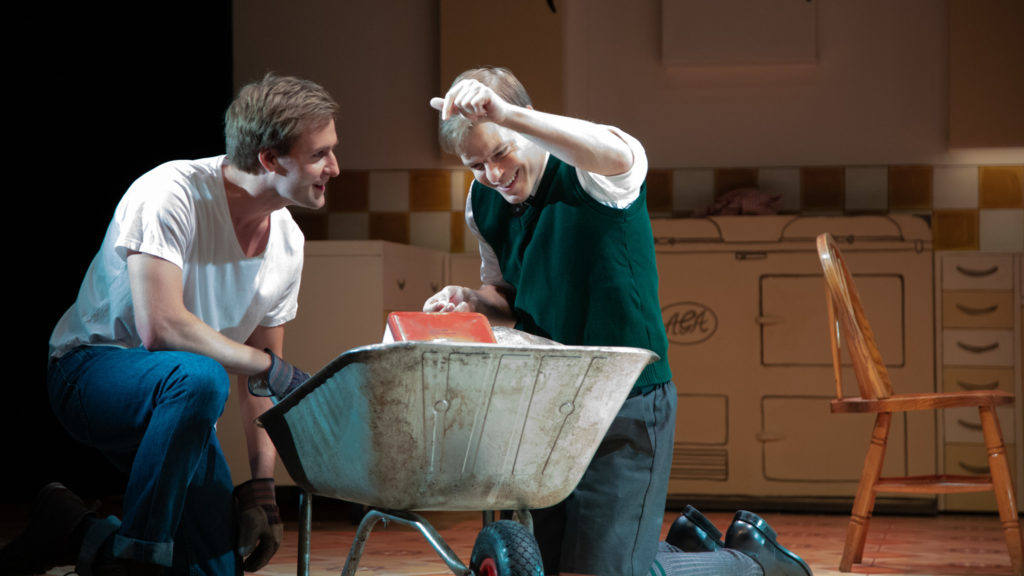
Did Nigel have an absolute veto on anything?
Henry: “Mainly language. There is a bit where they go to Bournemouth on holiday and there is a line about looking out on the sea and the guy who used to play Nigel once said ocean instead of sea. Apparently, that is a massive no-no because Nigel would never have said ocean in the 60s. It’s the details – like making the labels for the damson jam props. He made a lot of props.
“The general shape of the play he’s always been quite happy with because he understands that you send a book out into the world and it’s up to everyone else how they deal with it”.
Were you worried about Nigel Slater’s reaction to what you had produced?
Henry: “I was terrified about Nigel’s response. I think you always think that what you’re doing you quite like but then you have to present it to people who’ve never read it before and you have to present it to the person who it’s about, who wrote the thing itself – that’s terrifying. He was very nice about it. He said he wouldn’t read it until I was happy with it, which was a massive bonus because we didn’t know each other. I might’ve massacred his memoir, which would’ve been awful. Touch wood, I haven’t done that. But he was very generous in saying do whatever you need to do.
“When I was writing it, I read an interview with Lee Hall, who wrote the screen play for the film. And Lee Hall basically said that you can’t care the person is still alive and you can’t care about the person reading it. You have to write the thing you need to write. If the person hates it you can change it, which he did a little bit, but you have to write the thing that you want to write and don’t worry that there’s a real-life Nigel Slater who will be there at some point. It was great advice, which I followed.”
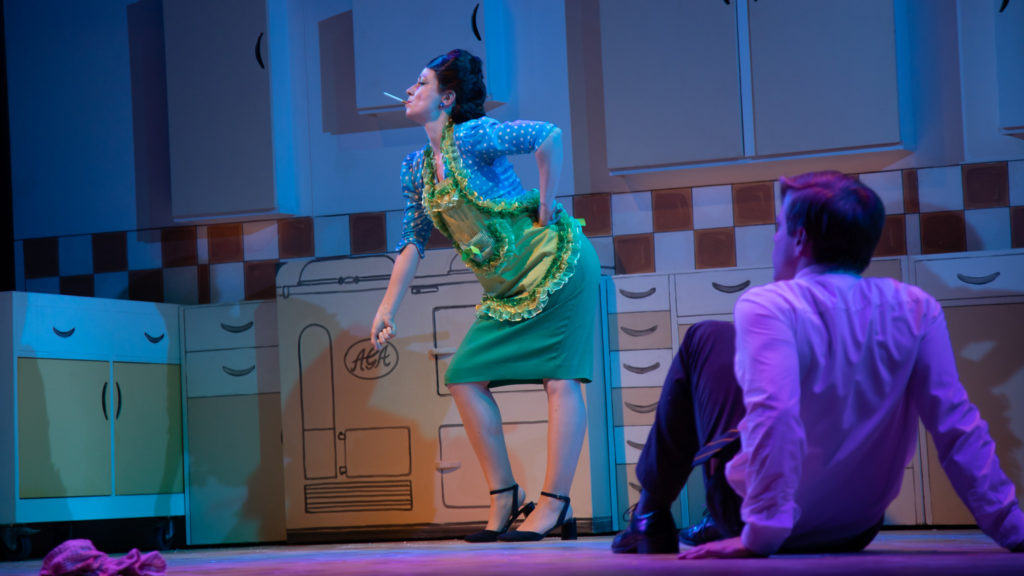
How much of a challenge was it to adapt the book to the stage?
Henry: “I think one of the big challenges of adapting any book to stage is how you a make it interesting to watch. Obviously if you’re reading a book you can be totally absorbed in it. You can enjoy the characters and you can enjoy the plot, but actually when you’re faced with watching something that sort of takes it in a different direction. But then the added challenge is that Toast, if you’ve read it, it’s not a narrative based book. It skips around quite a lot. It covers his childhood roughly, but it talks about it in tastes and memories and smells, so finding a journey to go on from start to finish, is I guess how the book starts, but it certainly doesn’t go in a linear way. That’s been a massive challenge of adapting a book like Toast but that sort of makes it more fun as well because you don’t need to stick to normal storytelling rules”.
Why do you think the tastes and smells are so important in both the autobiography and the play?
Henry: “If you read the book – which you should do, it’s way better than the play – all the chapters are things like marshmallows or digestive biscuits. Angel Delight was the one I responded to – butterscotch Angel Delight is probably the best thing ever invented! It’s an amazing pudding and it takes 5 minutes to make.
“Everyone can remember or knows the smell of certain things. Everyone can tell what toast smells like, when it’s starting to burn a little bit. For the play there were certain things that had to happen. The audience had to taste something they had to smell something, and they had to hear certain foods described that would probably evoke memories, so I think that’s why it’s important. Without tastes and smells the book doesn’t really exist. It would just be a book about a boy growing up. And actually, this is a book about a boy growing up with various smells and tastes”.
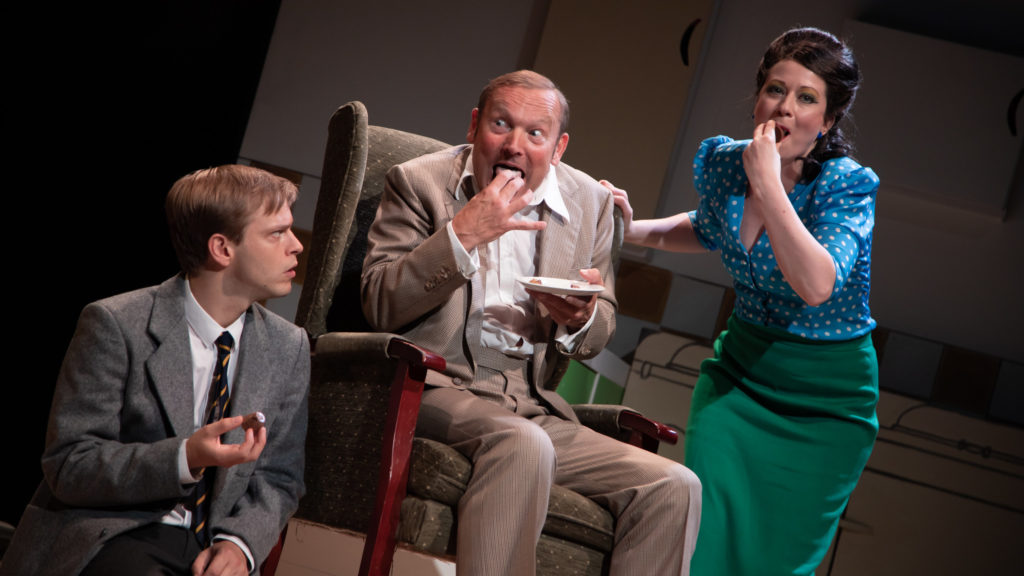
So, what kinds of problems did that cause when you adapted it for the stage?
Henry: “It started at the Lowry and one of the biggest challenges was how on earth do you feed 400 people a night with more than thing? It would be difficult enough to give everyone something, but to give them 5 different foods, which was what they had at the Lowry, was almost impossible. Nigel and James, our food director, worked with the team at The Lowry in Pier Eight. Oliver who is the executive chef there worked incredibly close with Nigel and James to create these foods that everyone would get to taste.
“Nigel was really involved and that’s how we got through it, with massive collaboration and also the Lowry saying just do whatever needs to happen – that was amazing”.
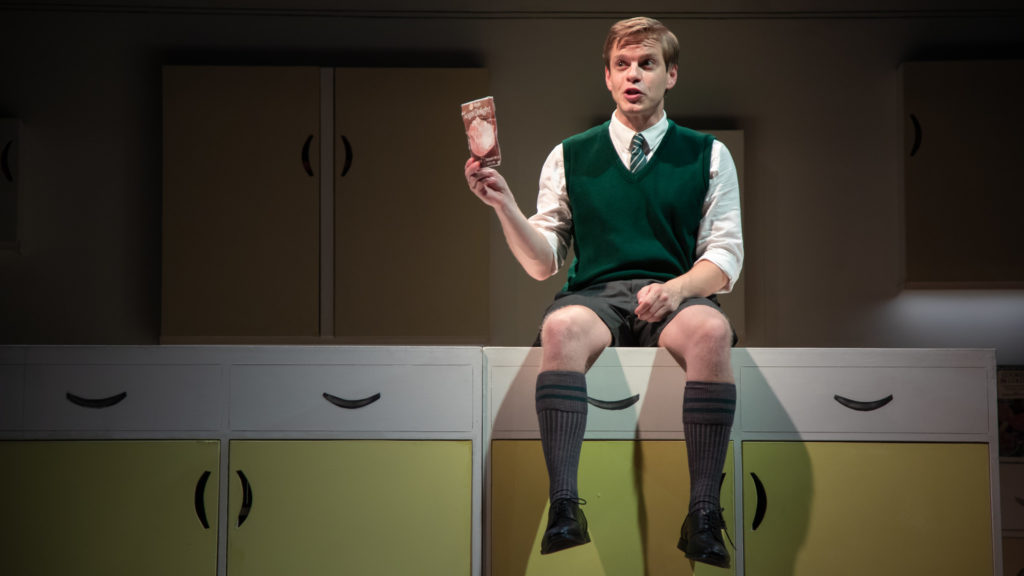
Do you do any cooking on stage?
Henry: “Yes, we do. I’m not going to tell you what. But there is a scene when we cook on stage. Have you ever seen Billy Elliot? In the script I wanted to copy the bit where he does the angry dance and he can’t express himself any other way. There’s a moment in the play when Nigel gets told something and he doesn’t know how to respond. In my head the only way he could’ve responded was to cook and so it’s meant to be the angry dance for Nigel. It’s a really interesting thing because there is no talking for nearly five minutes. It’s quite intense and Giles had to learn how to cook that dish perfectly. Hopefully it resonates and you’ll find it interesting, but for some people it’s the only bit that I didn’t write and it’s the bit that people cry at. That bit certainly gets people because they can smell and see. The sound of food cooking in a frying pan is amazing, especially in a theatre”.
Nigel Slater ’s Toast is at The Lowry from 11-16 November 2019.


